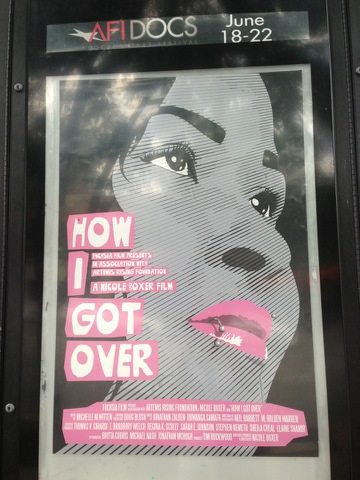“I just can’t believe I’m here,” exclaimed newly-minted movie star LaJuana Clark amid the flood of people offering their congratulations at the sold-out premiere of How I Got Over.
Of the 84 documentaries to be shown at AFI DOCS, the American Film Institute’s annual documentary festival, How I Got Over was the only project set and made in the District.
The film follows the journey of Clark and 14 other women in an addiction recovery program at N Street Village, a District shelter for homeless and low-income women.
The documentary presents a story within a story.
As How I Got Over unfolds, the women are working to craft an original play based upon their lives. In their play, they recount their own truly harrowing and courageous narratives of survival and redemption. Their play is created with the help of Deb Gottesman, co-founder of The Theatre Lab, a District based nonprofit school for the dramatic arts with a mission of transforming lives through theater. Theatre Lab’s Life Stories project offers the women a safe place to tell their stories. For many of the women, sharing their experiences becomes an additional facet of their recovery from addiction and abuse.
Clark and the other women have never acted before, but Gottesman realizes the power of their stories and decides they belong on stage. The play, which they entitle My Soul Look Back and Wonder, is ultimately performed as a one-night only production at the Kennedy Center.
The documentary How I Got Over, screened in June at AFI DOCS follows the women’s transformation from victims to artists as they bring their deeply personal stories to one of the nation’s most prestigious performance spaces.
The film represents Nicole Boxer’s directorial debut but she is well known for her production of controversial films such as The Invisible War, which helped jump start a public conversation over sexual assault in the military. In the film Boxer explores the performing arts’ capacity to heal trauma and the importance of the arts in building community. Boxer believes that “the arts, more than just a means of entertainment, are vital to the functioning of a healthy and productive society.”
Midway through the film, one of the women highlights this connection by saying, “this is where your story joins my story, and becomes our story.”
Clark who features prominently in the film, said she believes stories are for sharing. After seeing How I Got Over on the big screen, she said the documentary “should be played everywhere, all around the world because there are addicts all around the world and they need to know that there is hope.”




